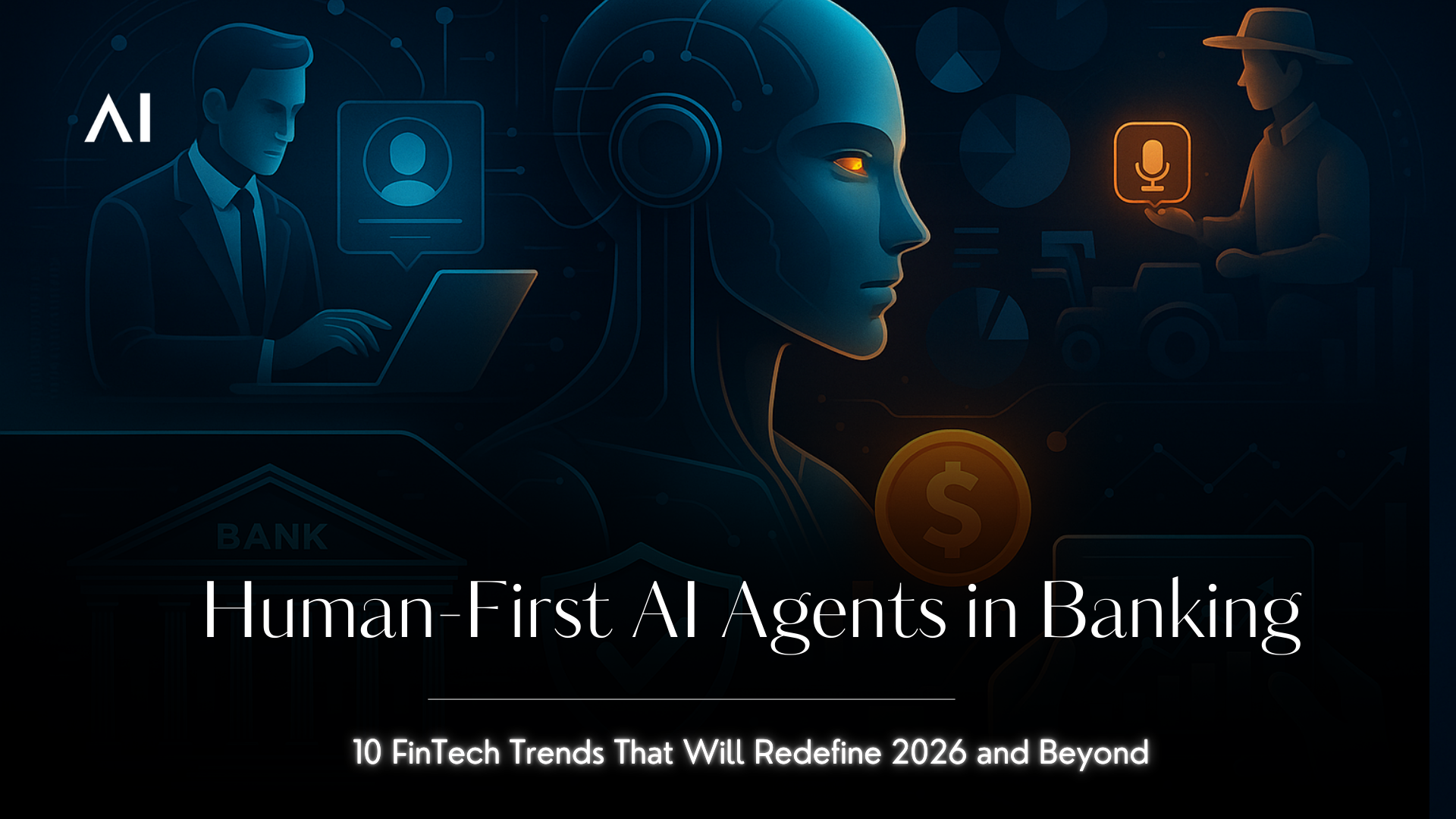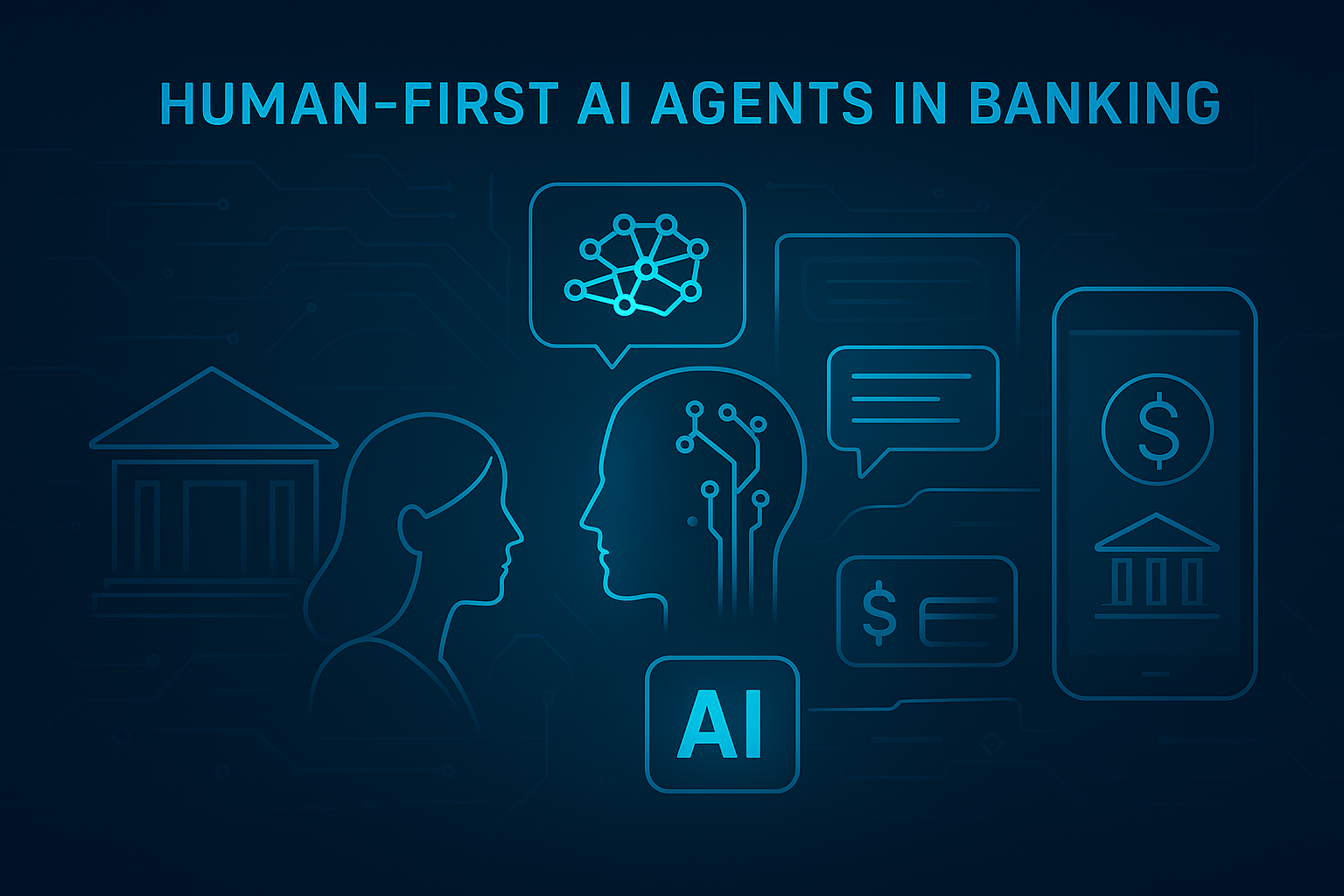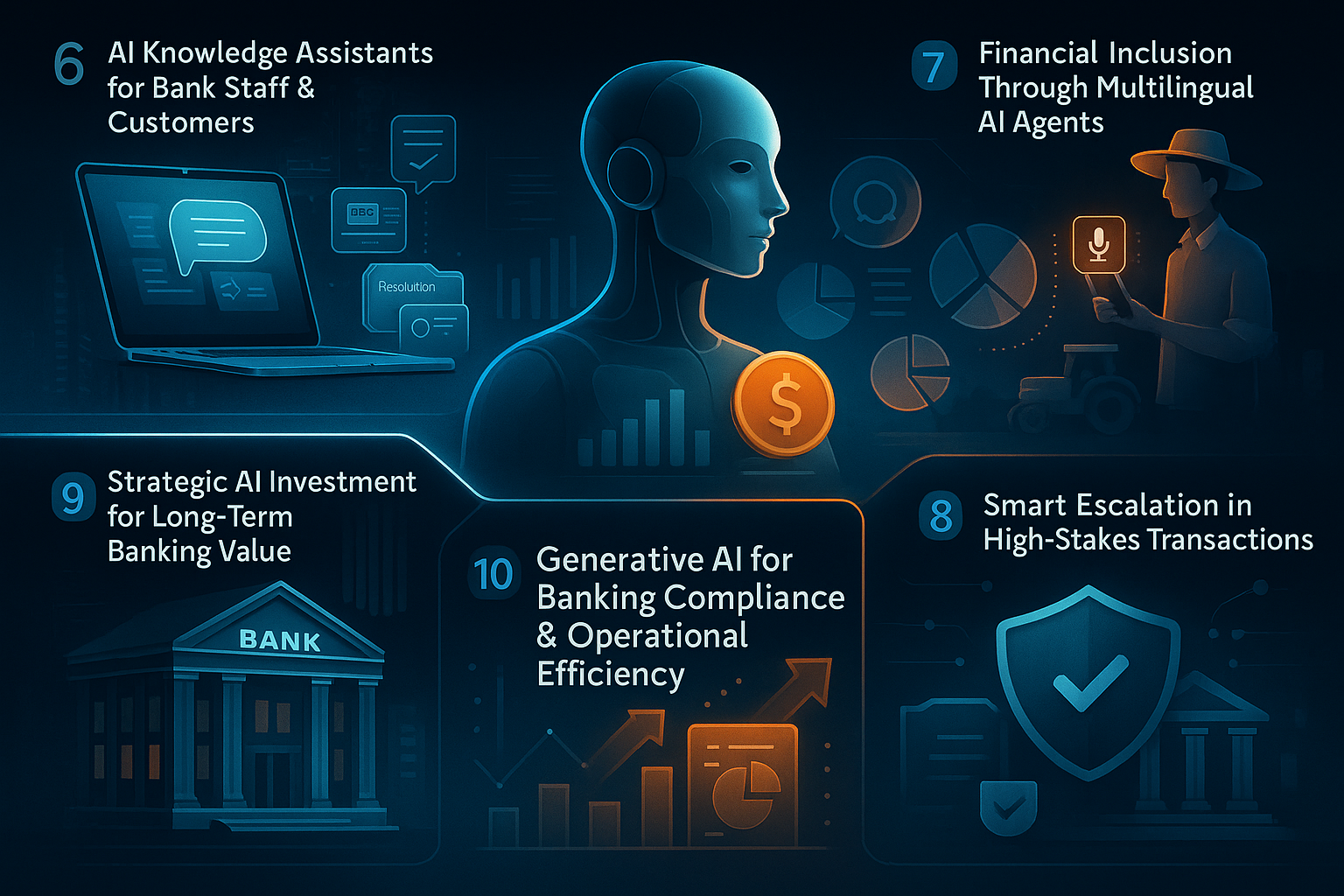Join our WhatsApp Community
AI-powered WhatsApp community for insights, support, and real-time collaboration.
AI agents are redefining banking trends for 2026, blending automation with empathy, driving personalization, compliance, and new revenue through agentic intelligence.

| Why is AI important in the banking sector? | The shift from traditional in-person banking to online and mobile platforms has increased customer demand for instant, personalized service. |
| AI Virtual Assistants in Focus: | Banks are investing in AI-driven virtual assistants to create hyper-personalised, real-time solutions that improve customer experiences. |
| What is the top challenge of using AI in banking? | Inefficiencies like higher Average Handling Time (AHT), lack of real-time data, and limited personalization hinder existing customer service strategies. |
| Limits of Traditional Automation: | Automated systems need more nuanced queries, making them less effective for high-value customers with complex needs. |
| What are the benefits of AI chatbots in Banking? | AI virtual assistants enhance efficiency, reduce operational costs, and empower CSRs by handling repetitive tasks and offering personalized interactions. |
| Future Outlook of AI-enabled Virtual Assistants: | AI will transform the role of CSRs into more strategic, relationship-focused positions while continuing to elevate the customer experience in banking. |
By 2026, AI-powered conversational agents won’t just answer FAQs — they’ll act like digital branch managers available 24/7 across mobile apps, WhatsApp, web, and voice banking.
For example, instead of waiting on a 15-minute IVR call, a corporate client could initiate multi-million-dollar trade finance queries via AI chat, receive instant policy clarification, and escalate to a relationship manager if required.
Want to know where most banks are still losing customers despite AI adoption? Check out The Hidden Gaps Costing Banks Customers.
Banking impact:
Banks are no longer just service providers — they’re becoming platform enablers. Through Open Banking APIs, financial products will embed directly into retail, payroll, e-commerce, and travel platforms.
Banking impact:
In a sector where trust drives deposits, emotionally aware AI agents can detect customer frustration or anxiety and adapt tone and response accordingly.
Example: An AI agent assisting a customer disputing a fraudulent transaction can recognize urgency in voice patterns, escalate instantly, and provide real-time reassurance while securing the account.
Banking impact:

Legacy mainframes limit innovation. Cloud-native, modular cores like Temenos, Mambu, or Thought Machine enable real-time data processing, product agility, and seamless AI integration.
Use case: A bank launches AI-personalized mortgage offers in weeks instead of months due to cloud agility.
Banking impact:
Gone are the days of static customer segmentation. With real-time behavioral analytics, banks can dynamically adjust credit limits, recommend savings products, or trigger fraud alerts instantly.
Example: A retail banking customer who checks mortgage calculators multiple times in a week could automatically receive a personalized loan pre-approval offer via mobile app push notification.
Banking impact:
Think of this as Google for your bank, powered by AI.
An AI knowledge assistant could allow bank staff to instantly retrieve RBI compliance clauses, lending policy updates, or explain Basel III liquidity ratios to clients.
Banking impact:
Want to see how AI avatars could change banking CX? Read Top 10 AI Banking Avatars.
In emerging markets like India, Indonesia, and Africa, voice-first, multilingual AI is breaking language and literacy barriers.
Example: A farmer in rural Maharashtra could apply for a Kisan Credit Card loan via voice banking in Marathi, guided step-by-step by an AI agent.
Banking impact:
In corporate & wealth banking, AI agents must know when to hand over to humans.
For instance, an AI platform processing a $50M cross-border payment could automatically route it for manual compliance checks under AML/KYC rules.
Banking impact:
CIOs and CTOs are shifting from buying one-off AI tools to adopting scalable, integrated AI platforms.
The winning strategy is choosing AI that evolves with changing regulations, customer behavior, and banking product innovation.
Banking impact:

Generative AI is already drafting compliance reports, summarizing client calls, and generating risk assessment summaries for credit committees.
Example: A wealth manager could instantly generate a portfolio risk compliance summary based on client holdings and new SEBI guidelines.
Banking impact:
See why Agentic AI is overtaking omnichannel banking in Omnichannel is Out. Multichannel Agentic AI is CX King.
Agentic AI will take banking far beyond automation — into a world where financial systems act on behalf of customers with minimal input.
Instead of waiting for users to request services, AI agents will initiate actions, negotiate terms, and execute transactions autonomously.
Banking Implications:
By 2026, winning banks won’t just deploy AI — they’ll weave it into every customer interaction and operational decision. The differentiator won’t be technology alone, but how human empathy and AI efficiency merge into a seamless experience.
Strategic Actions for Banking Leaders:
Fluid AI is an AI company based in Mumbai. We help organizations kickstart their AI journey. If you’re seeking a solution for your organization to enhance customer support, boost employee productivity and make the most of your organization’s data, look no further.
Take the first step on this exciting journey by booking a Free Discovery Call with us today and let us help you make your organization future-ready and unlock the full potential of AI for your organization.

AI-powered WhatsApp community for insights, support, and real-time collaboration.
.webp)
.webp)

Join leading businesses using the
Agentic AI Platform to drive efficiency, innovation, and growth.
AI-powered WhatsApp community for insights, support, and real-time collaboration.